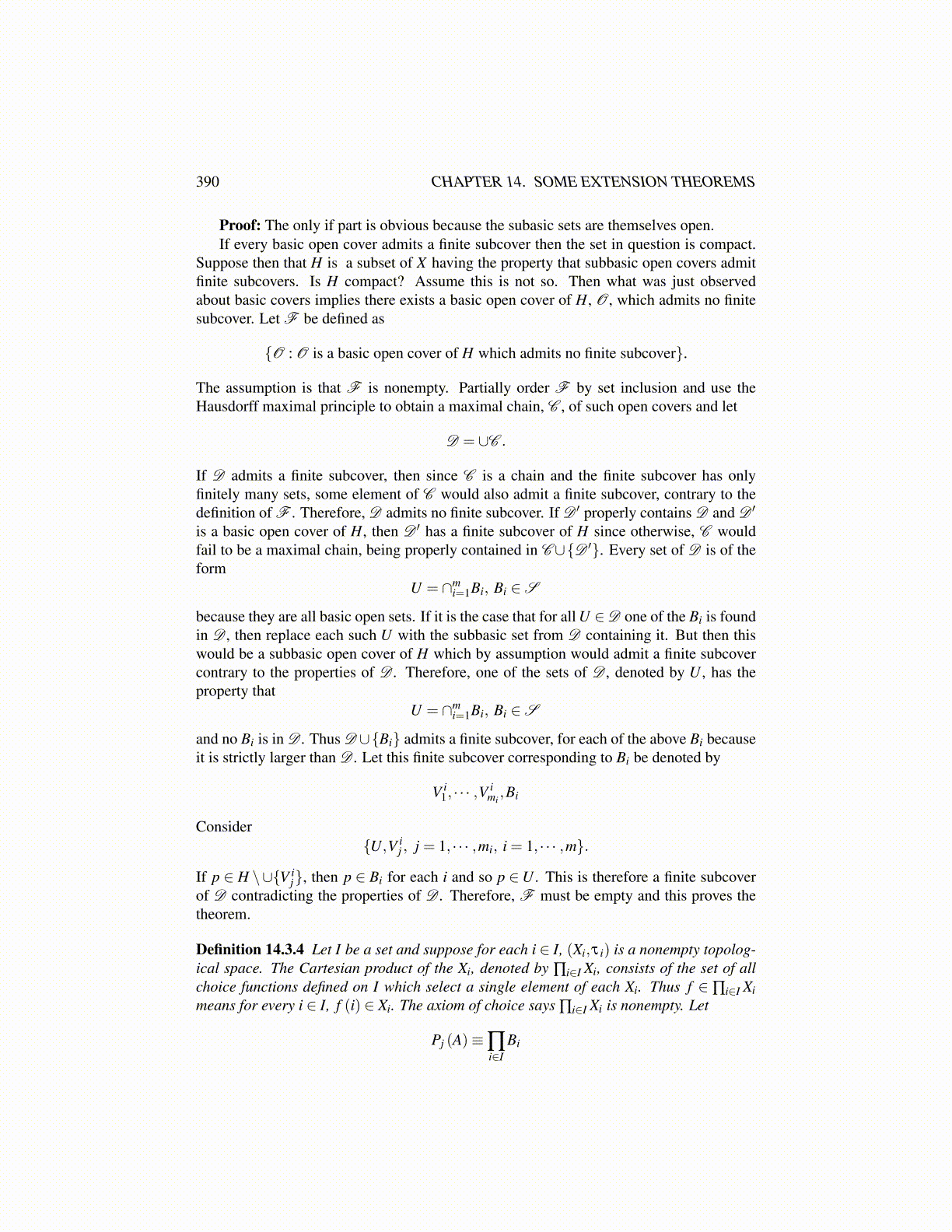
390 CHAPTER 14. SOME EXTENSION THEOREMS
Proof: The only if part is obvious because the subasic sets are themselves open.If every basic open cover admits a finite subcover then the set in question is compact.
Suppose then that H is a subset of X having the property that subbasic open covers admitfinite subcovers. Is H compact? Assume this is not so. Then what was just observedabout basic covers implies there exists a basic open cover of H, O , which admits no finitesubcover. Let F be defined as
{O : O is a basic open cover of H which admits no finite subcover}.
The assumption is that F is nonempty. Partially order F by set inclusion and use theHausdorff maximal principle to obtain a maximal chain, C , of such open covers and let
D = ∪C .
If D admits a finite subcover, then since C is a chain and the finite subcover has onlyfinitely many sets, some element of C would also admit a finite subcover, contrary to thedefinition of F . Therefore, D admits no finite subcover. If D ′ properly contains D and D ′
is a basic open cover of H, then D ′ has a finite subcover of H since otherwise, C wouldfail to be a maximal chain, being properly contained in C∪{D ′}. Every set of D is of theform
U = ∩mi=1Bi, Bi ∈S
because they are all basic open sets. If it is the case that for all U ∈D one of the Bi is foundin D , then replace each such U with the subbasic set from D containing it. But then thiswould be a subbasic open cover of H which by assumption would admit a finite subcovercontrary to the properties of D . Therefore, one of the sets of D , denoted by U , has theproperty that
U = ∩mi=1Bi, Bi ∈S
and no Bi is in D . Thus D ∪{Bi} admits a finite subcover, for each of the above Bi becauseit is strictly larger than D . Let this finite subcover corresponding to Bi be denoted by
V i1, · · · ,V i
mi,Bi
Consider{U,V i
j , j = 1, · · · ,mi, i = 1, · · · ,m}.
If p ∈ H \∪{V ij}, then p ∈ Bi for each i and so p ∈U . This is therefore a finite subcover
of D contradicting the properties of D . Therefore, F must be empty and this proves thetheorem.
Definition 14.3.4 Let I be a set and suppose for each i ∈ I, (Xi,τ i) is a nonempty topolog-ical space. The Cartesian product of the Xi, denoted by ∏i∈I Xi, consists of the set of allchoice functions defined on I which select a single element of each Xi. Thus f ∈ ∏i∈I Ximeans for every i ∈ I, f (i) ∈ Xi. The axiom of choice says ∏i∈I Xi is nonempty. Let
Pj (A)≡∏i∈I
Bi